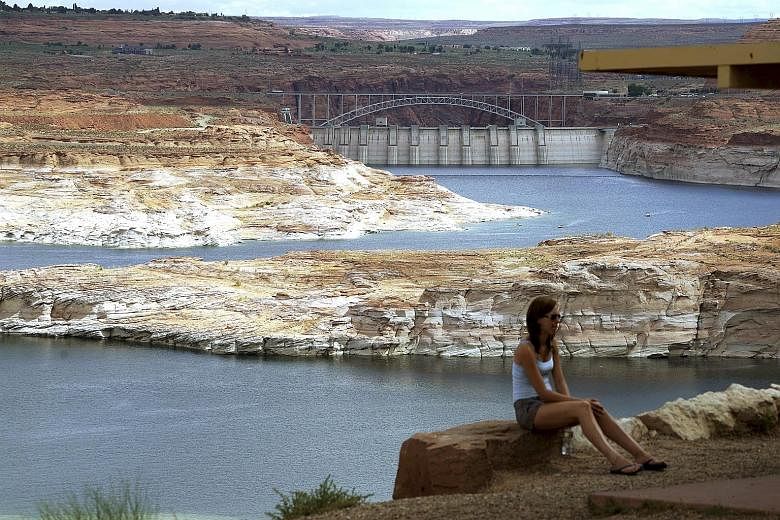PARIS • Thousands of power plants worldwide face sharp reductions in electricity output by mid-century due to more frequent heatwaves and drought driven by global warming, according to a study just published in the journal Nature Climate Change.
"We need to be concerned as electricity will become more expensive and less reliable in the future due to climate change," said co-author Keywan Riahi of the International Institute for Applied Systems Analysis in Austria.
If warming continues unchecked, higher temperatures and water shortages could, by 2050, cut capacity in hydro-electric plants by nearly 4 per cent, and in thermoelectric plants - powered by fossil fuels, nuclear power or biomass - by 12 per cent. Even if the target embraced at the Paris climate summit in December is met - limiting global temperature rise to less than 2 deg C compared with pre-industrial levels - power capacity would still drop significantly, according to the study.
Hydro-electric and thermoelectric plants, which together provide 98 per cent of global electricity supply, both depend on water to cool machinery or generate power.
Improvements in efficiency and switching types of fuel, however, would be one way to avoid future shortages of water and power, the study said. Especially vulnerable regions include the United States, southern South America, southern Africa, central and southern Europe, and South-east Asia.
The study analysed data from nearly four-fifths of the world's hydro-electric plants and more than a quarter of thermoelectric ones.
"Many of the plants that we couldn't include in our analysis will be vulnerable to climate change as well, but we simply didn't have the information," Dr Riahi said.
Countries and companies need to make power plants more efficient to respond to the potential decline, in what scientists said was the first study of its kind to analyse the global impact of global warming on electricity production.
Water consumption for power generation is expected to double in 40 years, according to the study, which was published on Monday.
In many regions, this vastly expanded consumption will clash head on - particularly in rapidly expanding economies - with increased demands from agriculture and domestic use, neither of which is taken into account in this study.
"Climate change will amplify this competition, reduce reliability of the systems, and increase the risk of water and electric shortages," Dr Riahi commented.
AGENCE FRANCE-PRESSE, REUTERS

